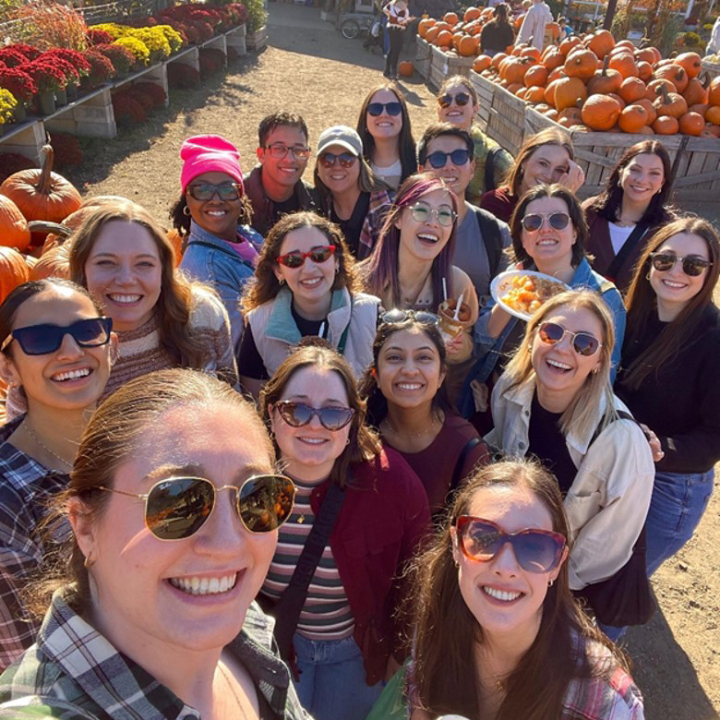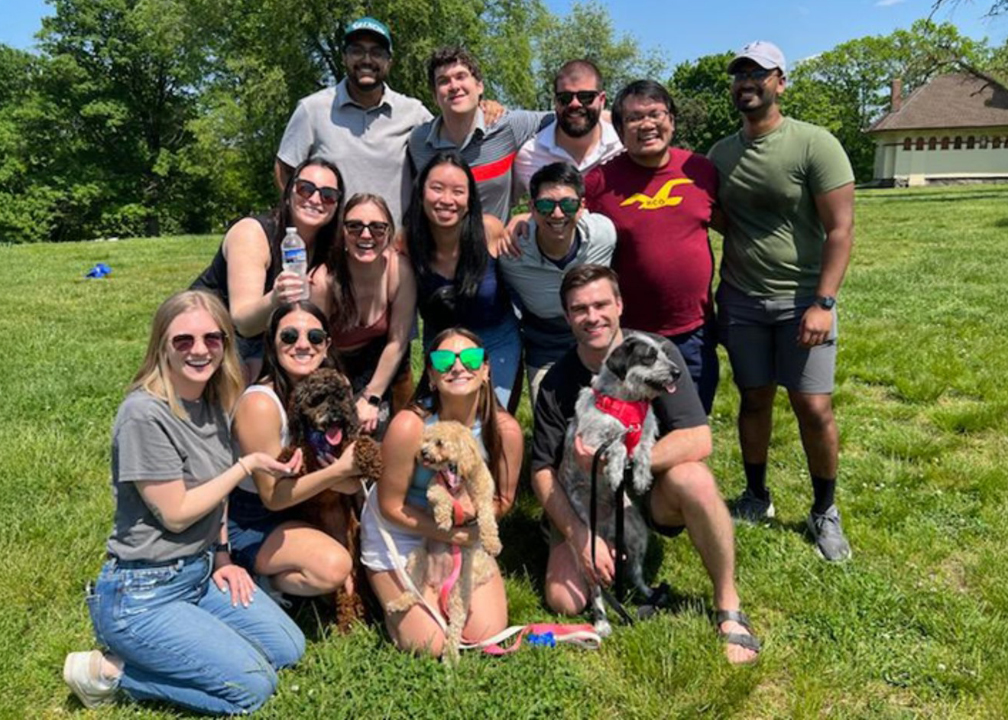- Does St. Christopher's have any religious affiliation?
No, St. Christopher's Hospital for Children is a non-sectarian institution.
- What do your residents do upon completion of residency?
Depending on the year, approximately one-half of our residents go into general pediatric positions, while the rest go on to some of the most sought-after fellowship positions in the country.
- How do you like living in Philadelphia?
A wide array of excellent restaurants, arts and theatre, exciting nightlife, beautiful parks, and of course, great sports teams (E-A-G-L-E-S! EAGLES!), make Philadelphia a wonderful place to live and work. There are plenty of housing options both in the downtown area and in the surrounding suburbs; most residents live within 20 minutes of the hospital. Even better, Philadelphia is perhaps the only large East Coast city where you can live comfortably on a resident salary!
Check out where our residents live using this interactive map.
- What types of research opportunities are available to residents?
While our Infectious Disease, Neonatology, and Endocrinology departments have received the most notoriety for their work, there are a variety of topics actively being researched by all of our departments. Our residents have published articles in general and subspecialty journals, as well as review journals, such as Pediatrics in Review. Multiple residents each year present their research at several national conferences, including those of the Pediatric Academic Societies, Pediatric Hospital Medicine, Eastern Society of Pediatric Research, and Association of Pediatric Program Directors, as well as subspecialty meetings, such as that of the North American Society for Pediatric Gastroenterology, Hepatology and Nutrition, and the American Society of Pediatric Hematology/Oncology. Our Scholarship Oversight Committee and residency curriculum encourage residents to think broadly about the concept of "scholarship" as well, to include advocacy, quality improvement, and educational research in addition to traditional bench and clinical research.

- How flexible is scheduling?
The Chief Residents are extremely conscientious about making the call schedules as accommodating as possible. Our larger class size is helpful when schedule swaps are needed since it is relatively easy to find another resident to switch with you.
- How much Q4 call do you have?
Residents may have 2-3 blocks of Q4 call during their residency, which currently takes place in the ICU.
- How does the night shift work?
There are night shift residents on all inpatient teams and in the NICU.
On the inpatient teams, the night team is made up of a PL-1 and a supervising senior resident (PL-2 or PL-3). They cover Sunday-Friday night, 5 p.m. to 7:30 a.m., handling admissions and any patient issues that arise. As the night shift intern, you will hand off patients at 6:15 a.m. to the day team, including the attending physician.
In the NICU, the night shift goes from 7 p.m. to 7 a.m. The night resident is responsible for monitoring the whole unit in collaboration with on-call nurse practitioners and fellows, with attendings available in person as well.
- How many months of inpatient floors do you work as an intern?
Each intern will spend up to 5 months on the inpatient service.

- How many electives are you allotted?
Most residents receive 9-10 blocks of elective time during the course of their residency, during which time you are required to complete 7 subspecialty electives. The remaining blocks can be used for additional subspecialty rotations, or for individualized rotations, such as research. During each of the final two years, you are provided with one "call-free" month that can be used to pursue international experiences or electives at other institutions.
- How does the Jeopardy System work?
Every day there are one to two residents per class who are on "jeopardy" call in case an emergency prevents one of your colleagues from being at work. If used, there is no “payback” system, as we want to support each other in taking time off from work when indicated.
- Can you start or expand a family during residency?
Of course! We are very supportive of life outside of the hospital and work closely with expectant mothers and fathers to prepare for their little ones' arrival. Our residents' babies become part of the family, too, attending social events and being celebrated for their first steps, the first day of school, and more!
- Can you tell me about the faculty?
Our faculty is phenomenal! They are highly trained, approachable, effective teachers and excellent role models, many of whom are regionally, nationally, and internationally recognized for their expertise, leadership, and research.
